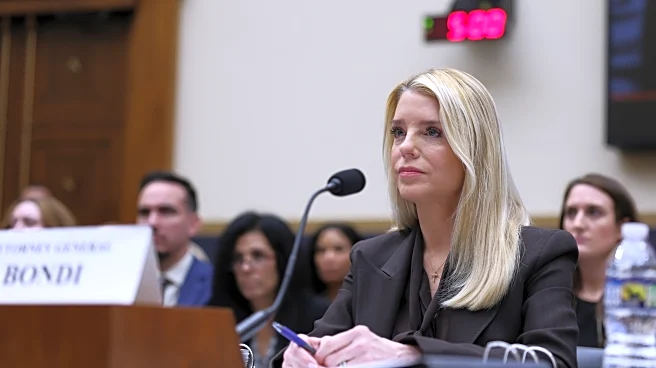What's Happening?
The U.S. Treasury Department has imposed sanctions on two of Russia's largest oil companies, Rosneft and Lukoil, following renewed military actions in Ukraine. These sanctions are part of a broader strategy
by the Trump administration to pressure Russia into ceasing its aggressive actions in the region. The sanctions were announced on October 22, 2025, and are aimed at crippling the financial capabilities of these companies, which are significant contributors to the Russian economy. This move comes after recent attacks in Ukraine that resulted in the loss of seven lives, escalating tensions between the U.S. and Russia.
Why It's Important?
The imposition of sanctions on major Russian oil companies is a significant escalation in the U.S.'s response to Russia's military actions in Ukraine. By targeting Rosneft and Lukoil, the U.S. aims to weaken Russia's economic power and influence, potentially forcing a change in its foreign policy. These sanctions could have far-reaching implications for global oil markets, potentially affecting oil prices and supply chains. Additionally, this move underscores the U.S.'s commitment to supporting Ukraine and deterring further Russian aggression, which could influence international diplomatic relations and alliances.
What's Next?
The sanctions are likely to provoke a response from Russia, which may retaliate with its own economic or political measures. The international community will be closely watching to see if these sanctions lead to a de-escalation of the conflict in Ukraine or if they further strain U.S.-Russia relations. The effectiveness of these sanctions in achieving their intended goals will be a subject of analysis and debate among policymakers and experts. Additionally, the impact on global oil markets will be monitored, as fluctuations in oil prices could have broader economic consequences.










